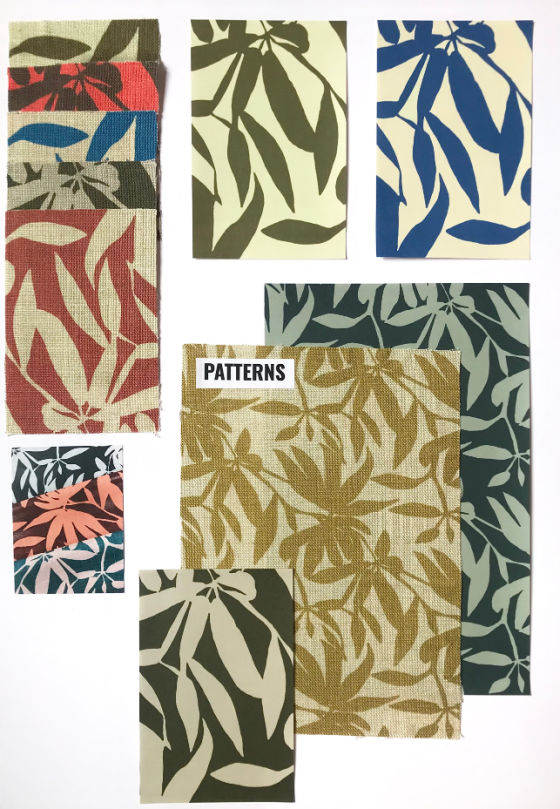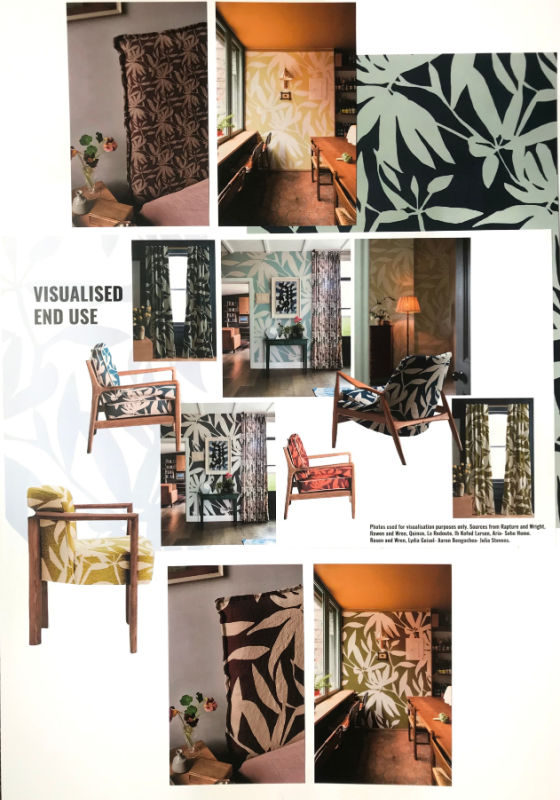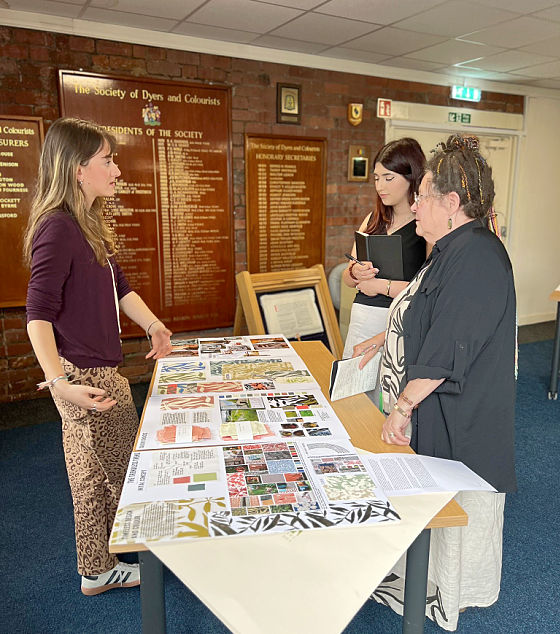Textile Design student Robyn Tilsley is set to represent De Montfort University Leicester (DMU) on the international stage, after winning the regional and national heats of a global competition.

Run by the Society of Dyers and Colourists, the SDC International Design Competition is renowned for giving undergraduate students a platform to showcase their talents globally.
As the UK finalist, Robyn will enter the global grand final in September, and the winner will receive a £1,000 prize and international media exposure.
Robyn has impressed the judges so far with the sustainable application of colour in her work. Her submission - The Trendless Trend - is inspired by timeless designs, and prioritises responsible consumption and production.

Her collection includes wallpaper and furnishing textiles in a classic leaf design drawing inspiration from traditional designers like William Morris.
The 19-year-old from Derbyshire said: “It’s amazing to get this far in the competition and I’m excited to represent DMU at an international level. I’m also looking forward to meeting students from other countries and getting an insight into their designs.
“Mostly I’m really grateful for the connections I’ve made with SDC, as they’re really good at supporting students through things like bursaries and mentoring.”

For her collection, Robyn chose to use just two colours to counteract the trend cycle, with shades that occur in nature and have been consistently popular throughout the history of textiles.
Taking full advantage of DMU’s facilities, Robyn experimented with the natural dyeing process, using madder roots and weld twigs. She concluded that the process was too time-consuming, used too much water and was too prone to colour fading to be viable on a commercial scale.
“I decided that the next best thing would be to use digital print and aqueous pigment to recreate the colours I produced naturally. This reduced water waste and improved colour fastness,” she said.

Robyn presenting her work to the SDC judges at the national heats
“One of the issues I found was that the pigment run-off can be toxic, but I found a Gloucestershire company that prints with aqueous pigment and uses plants to break down the pollutants. So, I was able to show the judges that this could be done both sustainably and commercially.
“We learn early on during our degree that fashion and textiles is one of the highest polluting industries, and we’re always encouraged to think of ways to reduce it and create change. It’s something I’m really interested in.”
To succeed in her project, Robyn relied heavily on a wide range of DMU’s facilities, including the dye lab, digital print workshop, screen printing room and collaborative studio spaces.
She said: “the facilities are why I chose to study at DMU and I’d say my experience so far has been even better than my expectations. As well as the excellent equipment we have, our tutors and technicians are all really helpful too.”
Nick Rodgers, DMU’s subject lead and programme leader for Textile Design, said: “We’re very proud of Robyn for winning the national heat of the competition. It’s great that she’s had the opportunity to impress the judges at each level by demonstrating how she has applied her learning to propose solutions to contemporary issues. It reinforces our belief that Textile Design can have a positive impact on the world.”
Posted on Friday 7 June 2024